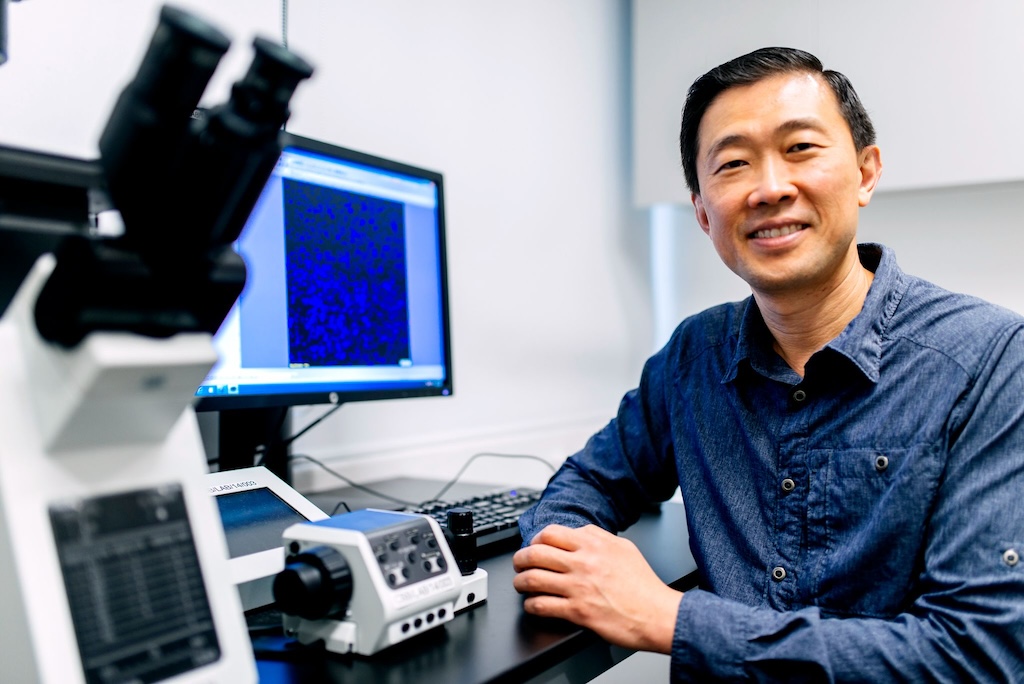First clinical cancer drug screening test
It looks to personalise treatments by improving the efficiency of chemotherapy regimes through testing using patients’ own cancer cells.

Dr Steven Fang, co-founder and executive director of Invitrocue.
Biotechnology and medical innovation company, Invitrocue, has achieved a breakthrough in clinical drug testing with Onco-PDO, their personalised oncology drug test. Available in Invitrocue-owned clinical laboratory licenced by Ministry of Health), Onco-PDO is the first clinical cancer drug screening test in Singapore that looks to personalise treatments by improving the efficiency of chemotherapy regimes through testing using patients’ own cancer cells, reducing overall treatment costs and time.
Backed by more than eight years of cumulative validation data, the Onco-PDO test is built on Invitrocue’s proprietary 3D liver cancer organoid tissue engineering technology, initially developed jointly with A*STAR’s Institute of Bioengineering and Nanotechnology, Massachusetts Institute of Technology, and the Genome Institute of Singapore in 2012.
Onco-PDO test is CE marked in Europe and in February this year, it has been approved to be covered under national public healthcare insurance in Germany.
The test equips clinicians and oncologists with critical data to prioritise drugs that demonstrate optimal results in targeting each patients’ cancer cells with 75 to 80 percent positive predictive accuracy and greater than 90 percent negative prediction rate, depending on cancer type. For patients experiencing relapses or showing no response to multiple treatments, Onco-PDO identifies drugs to which their tumours are either responsive or resistant, thereby improving their response to specific cancer treatments.
Dr Steven Fang, co-founder and executive director of Invitrocue, explained that every cancer tumour is unique, hence requiring a personalised approach. With Onco-PDO as an invaluable clinical tool, oncologists can accurately personalise cancer drugs and dosing strategies for each patient: “The published literature for breast cancer, colorectal cancer, and ovarian cancer tells a sobering tale, with success rates for chemotherapy treatments driven by general population-based data currently ranging from four percent to a modest 48 percent. Due to the heterogenous and unique nature of malignant tumours, patients often have to endure multiple rounds of treatment before finding an efficacious regime.”
Traditional laboratory procedures for testing patient-derived cancer cells against chemotherapy agents can take months, and are typically used for research purposes rather than clinical applications. Through Onco-PDO, a patient’s tumour cells are obtained through surgery or biopsy, then subjected to cell scaffolding technology to simulate their responses to various drugs outside the body. Each test can assess the 3D cells against up to eight chemotherapy agents, generating a detailed report on their responsiveness to each drug within a clinically relevant timeframe of just 10 to 14 days.
The test will be available to patients in Singapore through their oncologists. To start the process, tumour samples can be done by way of surgical resection or core biopsy at the hospital and then forwarded to Invitrocue’s clinical laboratory for the test to begin.
Currently, the test can be performed for patients with breast, ovarian, lung, colorectal, pancreatic, liver, gastric cancers, as well as head and neck cancers. Invitrocue is actively exploring opportunities to expand its application to other cancer types soon.

0 Comments